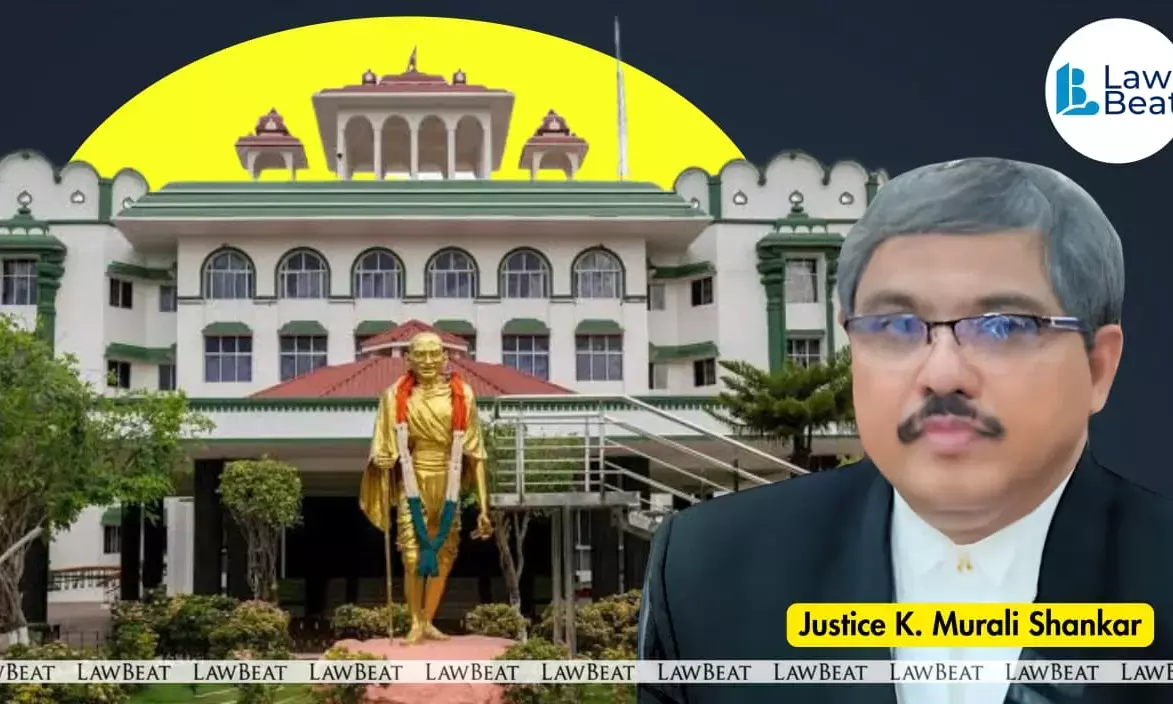POCSO Act: Madras HC Says Victim’s Parents Must Be Heard Before Granting Bail in Conviction Appeals

The Madras High Court directs hearing POCSO victim families before granting bail or suspending sentence of convict
The Madras High Court at Madurai Bench has held that while victims or their families need not be made parties in criminal appeals challenging convictions under the Protection of Children from Sexual Offences (POCSO) Act, their participation becomes mandatory when accused persons seek bail or suspension of sentence.
The bench of Justice K. Murali Shankar held thus while deciding three connected appeals filed by Venkateshwaran and Azhagu Raja, who were convicted in separate POCSO cases by special courts in Sivagangai, Theni, and Dindigul districts.
Court dealt with a crucial procedural question as to whether the de facto complainant, typically the victim’s parent or guardian, must be made a party in criminal appeals or notified during hearings for suspension of sentence.
The appellants contended that there was no such statutory requirement under the POCSO Act or its rules. However, the State argued that the notice requirement flows from Section 439(1-A) of the Criminal Procedure Code, which makes the presence of the informant mandatory at bail hearings in certain sexual offences involving minors.
Court referred to several judgments, including the Supreme Court’s decision in Jagjeet Singh and Others v. Ashish Mishra and Another (2022), which recognised victims’ “unbridled participatory rights” throughout criminal proceedings. Justice Shankar, however, clarified that this does not mean victims must be made parties to appeals.
Court also cited the Rajasthan High Court’s decision in Pooja Gurjar and Others v. State of Rajasthan (2023), which held that the victim’s right to be heard does not require impleadment, and the Calcutta High Court’s judgment in Ganesh Das v. State of West Bengal (2020), which found that appeals from POCSO convictions are not defective for want of the victim’s presence.
On the question of bail, Justice Shankar relied on a catena of High Court decisions that have made notice to the victim’s family mandatory. He referred to the Bombay High Court’s decision in Arjun Kishanrao Malge v. State of Maharashtra (2021), which required the presence of the informant or guardian during bail hearings in POCSO cases, and the Chhattisgarh High Court’s judgment in Akash Chandrakar v. State of Chhattisgarh (2021), which described such notice as essential “in the ends of justice”. The Karnataka High Court in Bibi Ayesha Khanum and Others v. Union of India (2022) had also issued similar directions.
Summarising the position, Justice Shankar said, "Involving the victim or their parents is not necessary in criminal appeals challenging the convictions under the POCSO Act. However, their impleadment is essential in regular bail applications under Section 483 BNSS (Section 439 Cr.P.C.) and suspension of sentence application under Section 430 BNSS (Section 389 Cr.P.C.)".
Court said, "Before suspending the sentence, it is essential to hear the victim's family regarding any potential harassment, threats, or coercion by the accused post-conviction. Without notice and hearing, the appellate court may remain uninformed about crucial developments".
The judge added that while acknowledging that some victims' families may be traumatized and unwilling to participate, others may actively engage to ensure justice is served. Therefore, hearing the victim's side is necessary before granting appeal bail.
However, court made it clear that when involving the victim's family or de facto complainant, their identity and details should be protected, and only necessary information should be disclosed without revealing their identity.
Accordingly, in the case at hand, court ordered that no direct notice should be issued to the victim. Instead, notice should be served on the victim’s parents, guardian or de facto complainant through the address provided by the State counsel. It also asked the District and State Legal Services Authorities to provide legal assistance to victims’ families through empanelled advocates wherever necessary.
Case Title: Venkateshwaran vs State of Tamil Nadu
Order Date: September 26, 2025
Bench: Justice K. Murali Shankar
